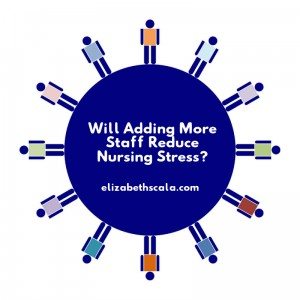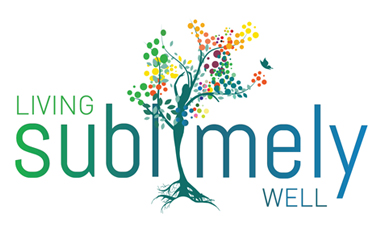 Nurses experience the stress of their nursing careers in a variety of ways. Some nurses find they take work home with them, unable to think about anything else after their shift is over. Others note their emotions are all over the place: one day happy, the next sad, or even a day of intense anger. Worst yet- nurses can turn to drugs, alcohol, and even food to cope with the stress of nursing.
Nurses experience the stress of their nursing careers in a variety of ways. Some nurses find they take work home with them, unable to think about anything else after their shift is over. Others note their emotions are all over the place: one day happy, the next sad, or even a day of intense anger. Worst yet- nurses can turn to drugs, alcohol, and even food to cope with the stress of nursing.
There are so many factors that contribute to the stress of being a nurse, however many nurses will tell you that unsafe nurse-to-patient ratios are the culprit. In fact, earlier this month, thousands of nurses rallied in Washington DC to advocate for safe staffing. While this is an excellent cause and was a hugely successful show of nursing camaraderie and pride- there is evidence that adding more nurses may not be the answer. Interestingly in a recent article on nurse stress and staffing, Linda Aiken, professor of nursing and sociology at the University of Pennsylvania and expert in the field of nurse staffing, states “If the work environment at a particular hospital is bad, just adding more nurses won’t address the problem.”
So we have a dilemma on our hands. And I’ve learned from a physician colleague Dike Drummond, MD that a dilemma is very different than a problem. While a problem has a solution, a dilemma does not. In fact, this issue of staffing and nursing stress is a multi-pronged dilemma… needing many different strategies along the way.
 Let’s think about it this way- we can have:
Let’s think about it this way- we can have:
- Organizations doing their part to impact staffing ratios
- Nursing leadership putting safe staffing policies into practice
- Individual nurses experiencing empowerment and healthy work environments
What do we have control over here? If you’ve been reading this blog along the way, you’ll be answering very quickly in this way: Ourselves. The only thing we can completely and realistically control is our own self. Our thoughts, feelings, words, actions and behaviors. So, while we certainly want nursing leaders, organizations and employers, and public policy to do their best to create safe staffing and reduce stress- we too can do our part.
[Tweet “Here Are 4 Steps to Reducing Your Own Stress as a Staff Nurse”]
 Focus On Goals. I read something on Facebook a few weeks ago that I just loved. It was a comment in the Your Next Shift community about sticking with goals. A nurse so clearly said- if you’re on the couch, you’re not moving forward! Well, how does this relate to reducing stress in your nursing career? When you have a target, you keep your eye on the prize. You avoid the drama in the workplace and continue taking steps to move forward towards your goal. Setting a nursing career or educational goal can help you focus on what’s important at work. Which leads us to…
Focus On Goals. I read something on Facebook a few weeks ago that I just loved. It was a comment in the Your Next Shift community about sticking with goals. A nurse so clearly said- if you’re on the couch, you’re not moving forward! Well, how does this relate to reducing stress in your nursing career? When you have a target, you keep your eye on the prize. You avoid the drama in the workplace and continue taking steps to move forward towards your goal. Setting a nursing career or educational goal can help you focus on what’s important at work. Which leads us to…- Appreciate Assets. What we focus on we get more of. If you want to keep your attention turned to the negative things about work (e.g. not enough staffing, limited budget, or electronic charting), then that’s what you’ll receive. It’s such an interesting phenomenon. When you turn your attention to what’s good about work… you start to notice more and more positive stuff. Notice a colleague who did a good thing- you’ll start seeing more of your teammates in a positive light. Observe a patient learning things from your teaching- all of your patients will seem to be following your advice. It’s just the simple nature of the law of attraction. Like attracts like. Focus on the good things you have in the workplace and you’ll start to notice more and more assets you can leverage.
- Provide Solutions. In talking to nurse leaders, I hear all of the time that the nurses they want on their teams are the ones who bring solutions to the table. No one wants to hear all of the complaints. Because guess what? They know what’s wrong and they’re struggling themselves with how to fix it. How cool would it be if you provide a solution to their problem? When you think about something like staffing, the electronic record, or patient volumes/flow- what kind of creative solutions can you bring to nursing leadership? Get creative here. Bringing ideas that no one has ever even imagined will propel you light years ahead. Which brings us to…
- Get Involved. As a solution-focused nurse, you want to get involved in what’s important to you. Now one warning here- this doesn’t mean that you need to join EVERY committee or get into every project. You’ll spread yourself thin; get burned out; and be of service to no one fast. Here- I encourage you to think about your own individual strengths, things that you enjoy, and personal traits. Join the causes, committees, or work groups that most interest you. Get involved with the issues you have solutions for. And be a part of the group that is solving problems and making changes happen.
What did we miss? I’d love to hear how you increase your capacity for change. Leave a stress-reducing tip in the comments below. Thanks for reading!
About the Author: As a keynote speaker, bestselling author and virtual conference host, Elizabeth partners with hospitals, organizations, associations, and nursing groups to help transform the field of nursing from the inside out. In her bestselling book, ‘Nursing from Within‘, Elizabeth supports nurses to make those inner shifts that are required to more fully enjoy our nursing careers.

Elizabeth, I really like that you have addressed seeing the positive in our daily work. It really does make the difference in reducing stress. So much of our daily stress is all about what we tell ourselves. You know, the negative stuff. It stresses us even more, especially when there is no quick fix to the problem-aka short staffing. I am going to go back to one of your suggestions for mindfulness meditation as a way to add to reducing the stress in our day. If you can’t take the time during the work day, and who could with short staffing!, it’s a great thing to do first thing in the morning to remind us to start the day down one notch. Thanks so much for sharing this great topic!
You got it, Dr. Jaffe. So glad that you enjoyed it. And thanks for bringing the topic of mindfulness to the discussion. Much appreciated.
All the mindfulness in the world can’t change the reality of having too many sick patients to care for with a limited amount of staff. I agree that we need to look for the positive and stop complaining, but I also know the difference in my stress level when I have 4, 6, or 8 patients in my care. I think the quote from Linda Aiken has been a bit misunderstood. While just changing the nurse to patient ratio in a toxic nursing environment is not sufficient , it is always in the interest of optimal patient care to have a lower patient to nurse ratio. Ask our patients what they think about staffing and they will tell you an earful.
Thanks, Lillian. Good point about asking the patients about their perspective. Appreciate the feedback. Thanks for sharing your comment.
Hi Elizabeth,
Thanks for giving us something important to think about. More staff may not always be the answer…but evidence shows that not having enough staff isn’t safe for nurses and patient care.
How do we achieve the needed balance?
We all have a stake in finding answers.
Great point, Donna. It is a balancing act. To ensure quality, safety, and satisfaction for all.
Great conversation and I’m grateful that you inspire and create the space for it, Elizabeth. I think that we have to be careful of all or nothing/black and white approaches. I’d say that lack of staffing is a cause of stress (a pervasive and chronic one in my 30 years of practice) and therefore adequate staffing is a part of a solution (an improve safety, patient exp, and job satisfaction). Yet our stress and staffing are both much more complex problems and there are individual and organizational factors that will contribute to solutions. I think you bring up great ways for individual nurses to take ownership and action in that direction, Elizabeth. I would add to your list a focus on communication that includes setting limits, asking for help, and respecting others’ limits. If we can do this, collectively we can raise awareness and be assertive about the need for adequate staffing. Organizational leaders can work to become more responsive to Nurses’ requests for staffing and encourage nurses to be assertive about what they need as well as nurture the ownership around those needs.
I was recently discussing the importance of validating staff requests for more staffing with a CNO. We used an exaggerated example of a nurse requesting 8 more full time nurses on the unit. I was suggesting that the CNO make it a priority to validate the nurses’s request before doing anything else, i.e, say something like, “It sounds like you are feeling frustrated that there is not enough help and hiring 8 more nurses would be enough staff, right?” The CNO said that she was worried that if she validated the nurse, that the nurse would think she was agreeing with her and so she didn’t dare validate her. It was a great conversation and I hope that I was helpful in helping her separate the validation step from the part of the conversation that would theoretically be a respectful dance of individual limit-setting, compromise, and realistic expectations all focused on safe care, healthy workplaces, and rewarding work and perhaps an outcome that included an extra part-time RN to cover 1p-5p and a process to stop additional admissions when staff were overwhelmed.
Providing the highly skilled work we do in a safe way, does require enough staff. Figuring how many and when and what skill mix requires is a dance that we do as individuals and teams and organizations. The dance will be safest when we speak up about our needs, are listened to respectfully, and work together to optimize resources.
Thank you so much for considering my input!
Great additions, Beth. I thank you for sharing your recent experience and also your tips for safe and effective communication. I am glad that this post has opened up the dialogue to innovative solutions.
Love these tips Elizabeth! My favorite way to reduce stress at work and bring change on the unit is related to one of the tips you mentioned.. focusing on the good and changing yourself. I truly believe there is always way more good than bad so that is what I focus on and I encourage my colleagues to do the same. so I would add ” be the change you wish to see” We can dramatically decrease the stress at work by first working internally, I always take time before my shift for a few minutes of breathing, prayer, and meditation this helps me to leave any drama or negativity outside of work and fuels me to walk into work bringing my best to my patients and coworkers.. this is contagious once we begin to share and encourage other nurses to do the same. I think since nurses help create the environment we work in, if we arent as stressed the environment will reflect that.
Awesome to hear, Tiffany! Thank you so much for sharing how this tool works in your own career. That will help many more nurses know that they too can do this going forward! Thanks for the comment.
As integral theory states for health we need our internal I & We, in addition to our external I and We. Great post by presenting another way to look at the issues.
Thank you so much, Maureen. And you know.. I hadn’t thought of it that way. So thanks for bringing that to my attention!
Great article with positive practical tips on how to manage it. I do agree that poor staffing is a reality and as many already presented, we need to become advocates for ourselves! We have to speak up about our needs and demand a seat at the decision tables. But as Elizabeth points out, we also must manage our ability to de-stress. Balance is the key. We will never get rid of all stressors but we can minimize them through self-care.
Right on, Naomi. Balance can be something that we are always striving for. It’s a balancing act between the workplace and our own inner accountability. Thanks for the comment!
I understand what Ms. Aiken was trying to say but that is the key. Staff and leadership need to first figure out is it really a staffing issue and/or a work environment issue. Once that is identified then the process to solutions can begin with everyone on board. Yes, we all must assess our selves internally for what part we contribute to stress and whether we are realistically handling it well. That is ongoing self evaluation. However, management and staff need to look at policy and standards to also see what is exacerbating stressful situations too. Collaborations and listening are great skills…to any career but exponentially for nursing profession.
It sure does take a village, Tanya! Thanks for coming by and sharing your comments on the blog. We must work as a team!!